The pandemic has been devastating for location-based leisure businesses (LBLs), including dining, entertainment, sports, and art venues. The overwhelming majority were forced to remain closed for months by government mandate. Now, 13 months later, many people are still not venturing out to LBLs, and almost all the ones that are now open have restricted capacities, thus restricting potential attendance and revenues.
The consumers that LBLs knew in 2019 are gone and never coming back, even when things are fully open. The pandemic has changed us as people. During the lockdowns and people’s nesting at home, people reflected on many things about how they lived their lives. People’s emotions changed. People are deciding what they will consider as their new normal lives on the other side of the pandemic. That includes their goals, values, priorities, and behaviors.
During quarantine, we experimented with new habits and lifestyles. Many people will keep some of them going forward, even in the post-lockdown world. However, we will also see many pre-pandemic behaviors returning.
Combined, all these changes and shifts will create a post-pandemic society with new consumer attitudes and behaviors, creating changed market demand for all the different types of LBLs. Some will be good for some kinds of LBLs. Some will be bad for others.
Although no crystal ball allows us to accurately predict the future landscape for LBLs, we have several strong suggestions from an April 2021 Harris poll.
People are reporting the life lessons they’ve learned, a shift in their values and priorities. The importance of human connection tops the list, followed by the enjoyment of a slow-downed life.
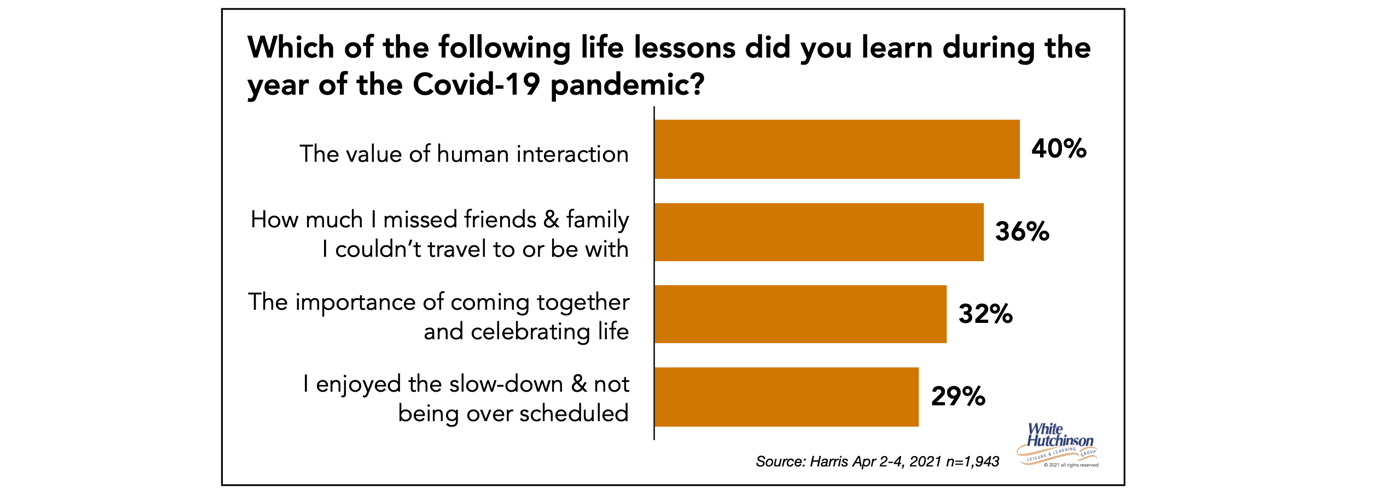
Covid changed attitudes about nightlife, including a heightened priority for small social gatherings at home or a friend’s place.
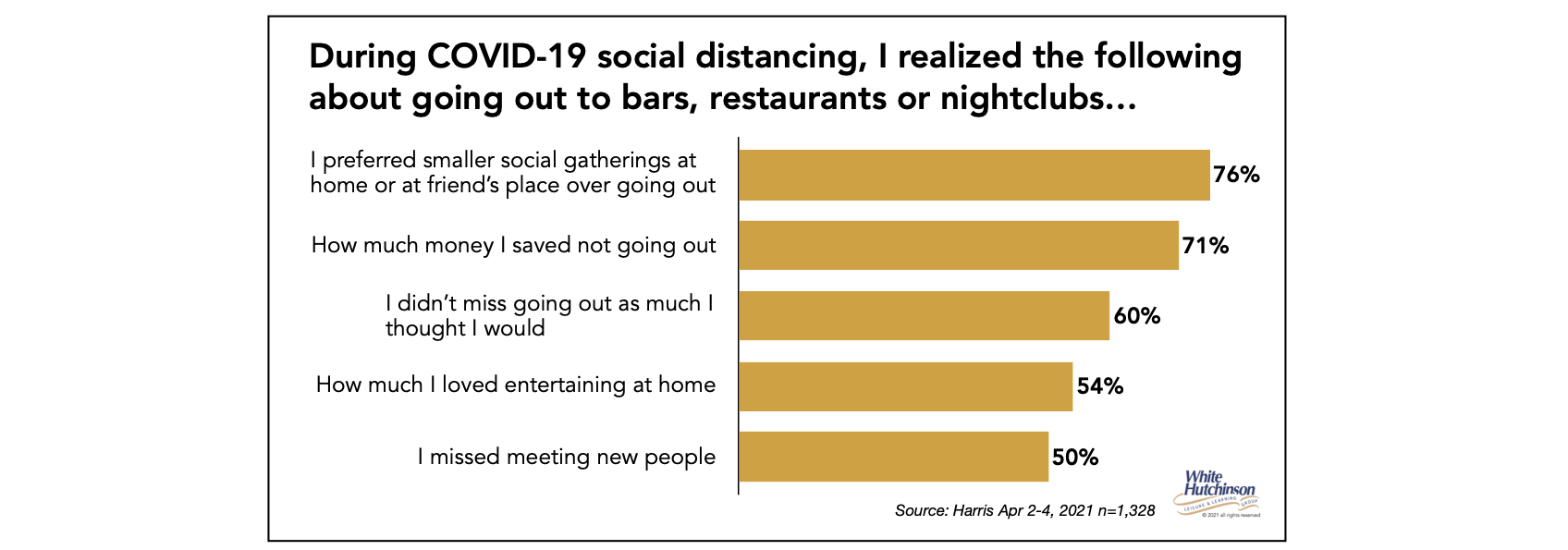
Three in four people missed gatherings with friends or family and dining in restaurants during lockdown and restrictions. Entertainment events such as concerts, theater, sporting events, and the cinema were missed less, only by a little more than half of adults (57%).
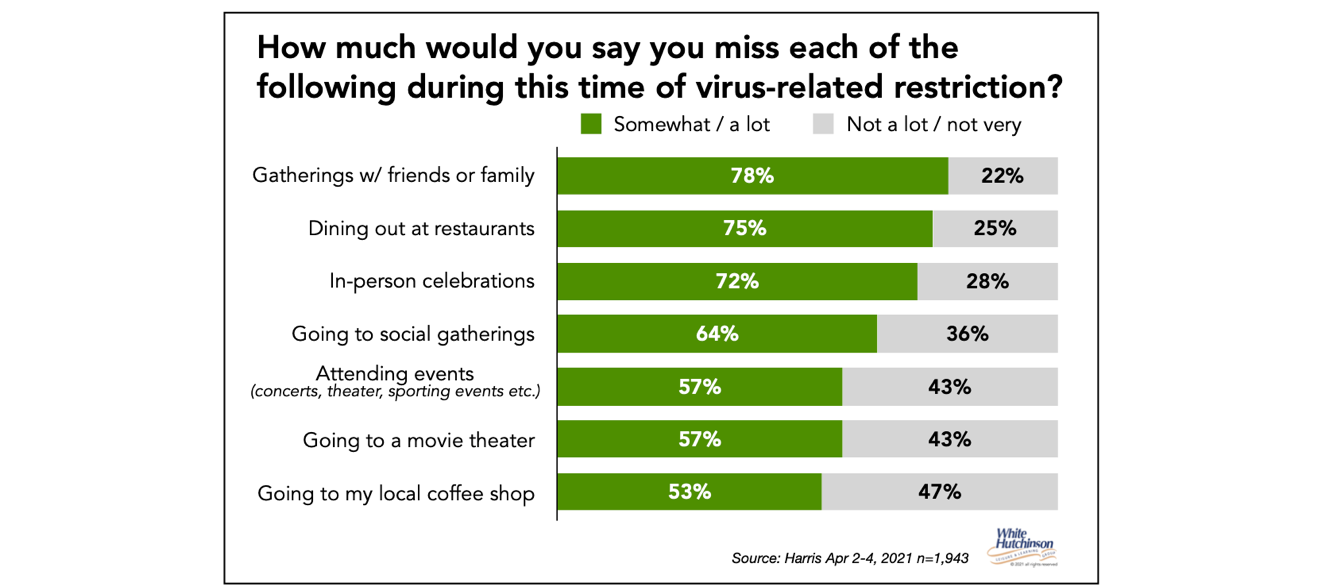
Looking forward to the post-pandemic world, people reflected on what they would miss about how they socialized during the pandemic if they went back to the old normal. Again, hometainment topped the list.
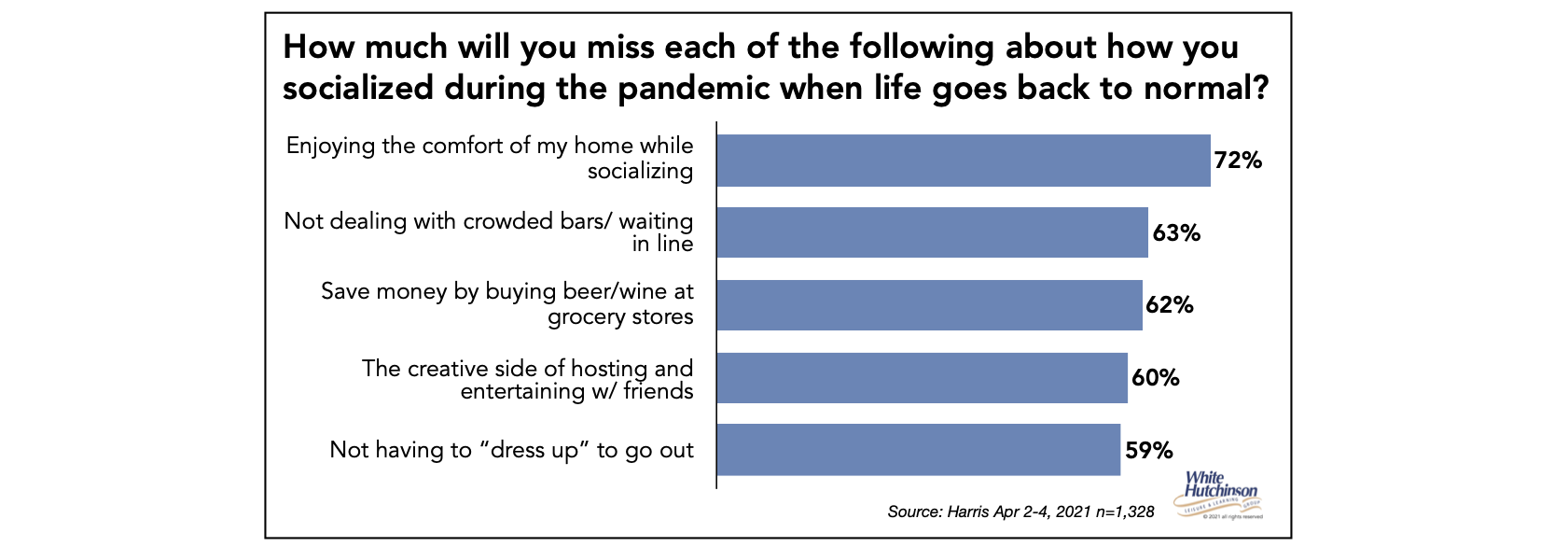
When asked about how they think they will socialize after the pandemic, people showed a strong preference for socializing and having fun with friends at home versus going out.
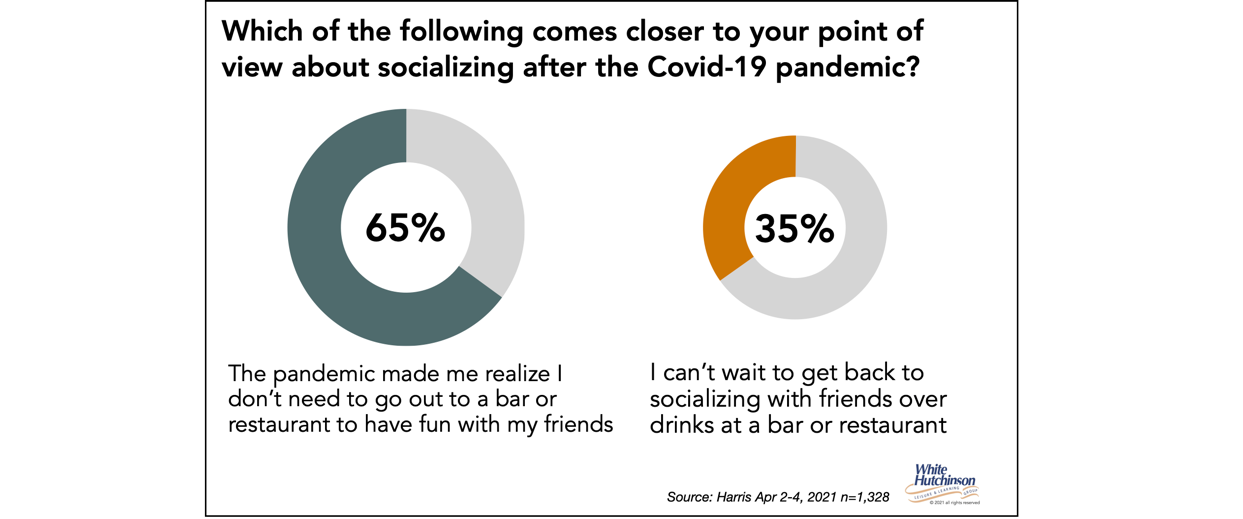
People have a strong future preference for drinking at home versus at a bar.
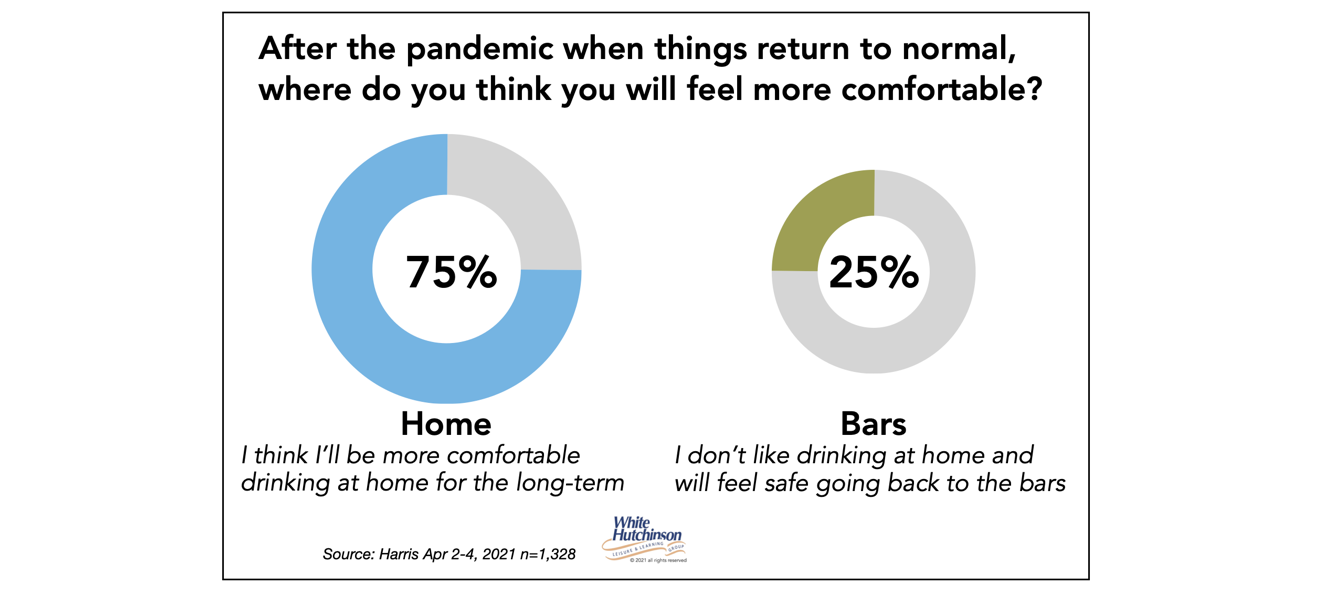
Six in ten adults say they will stay in more and find things to do at home with others (61%) versus going out more for entertainment than they did per-Covid.
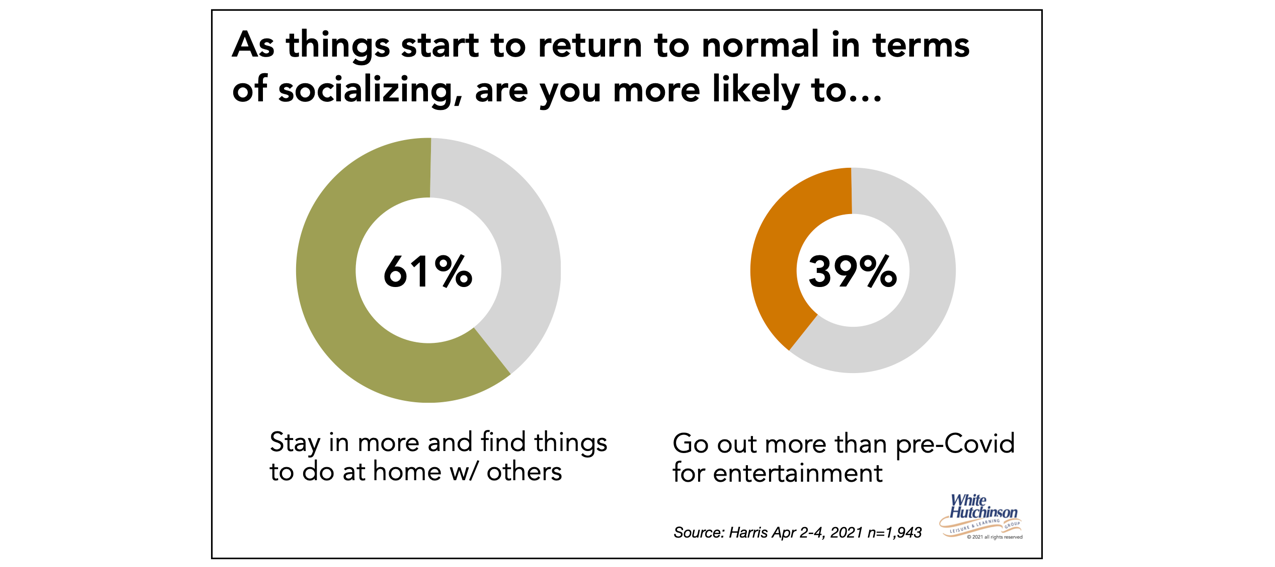
Only one in six people (17%) say that their ideal when things go back to normal is mostly going out to bars, nightclubs, or restaurants compared to nearly one-half preferring doing things at their or friends’ homes (46%).
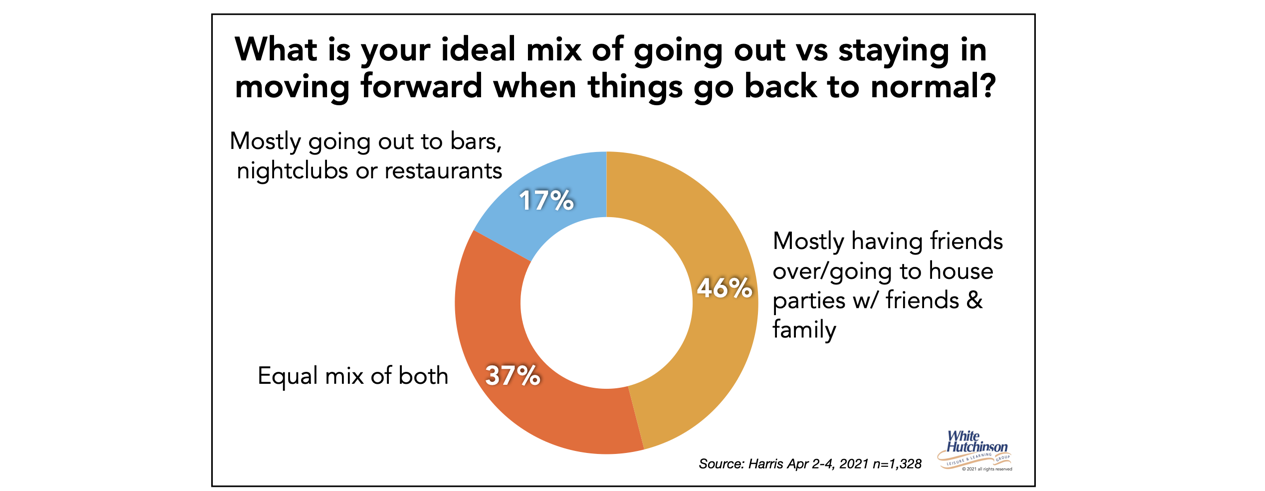
And when they can go out, especially with people they’ve missed, again socializing with people rated highest followed by traveling and seeing new places.
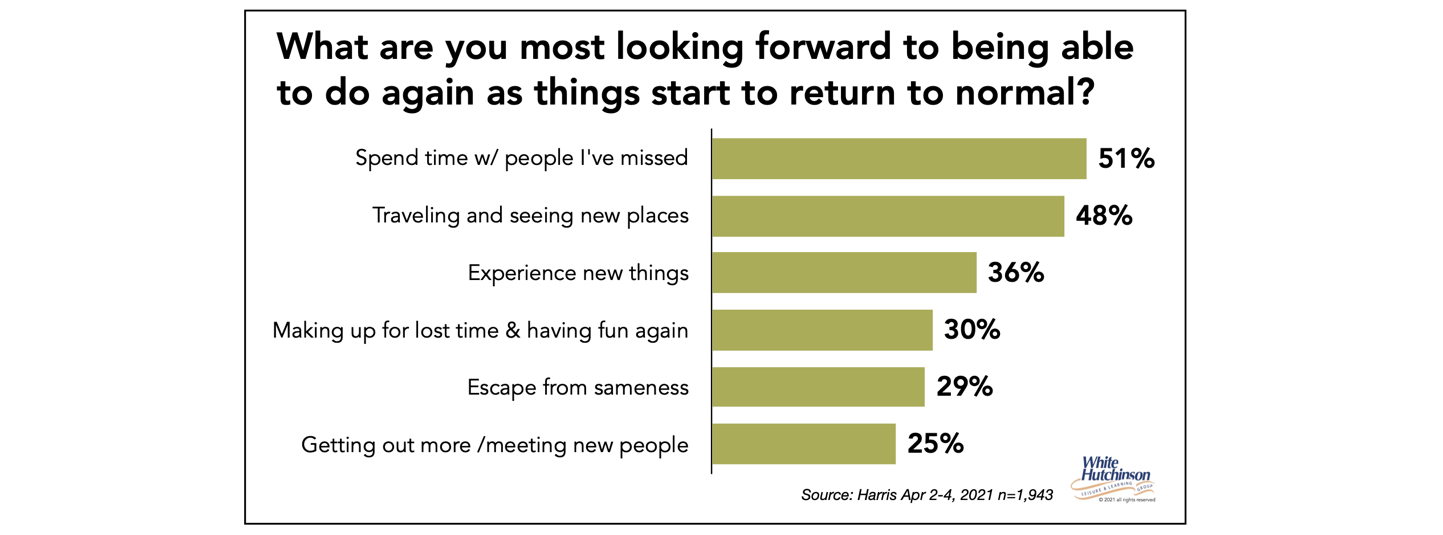
Research indicates that of the most long-lasting shifts from the pandemic, one will include the “deregulation of place,” people exercising more choice and being more discerning on where and how they spend their time. Indications are for a definite shift to prioritizing family and friends and socializing and enjoying their company at homes more than at different LBLs.
Not to be overlooked, the pandemic brought a strong appeal for the home as the place to socially connect with other people by using the metaverse (video games, AR & VR) in the Fourth Place for meaningful human experience, including culturally shared experiences. U.K. consultancy Trajectory defines the “Fourth Place” as “a digital space the recreates real-world leisure or interaction [socialization], and in doing so, changes it,” actually creating a new category of leisure and social experiences.
When out-of-home LBLs became largely inaccessible, if not outright dangerous to health, at the height of lockdowns, more than half of adults (55%) turned to video games to fill the time out of boredom, to escape the real world, and to socialize according to Nielsen.
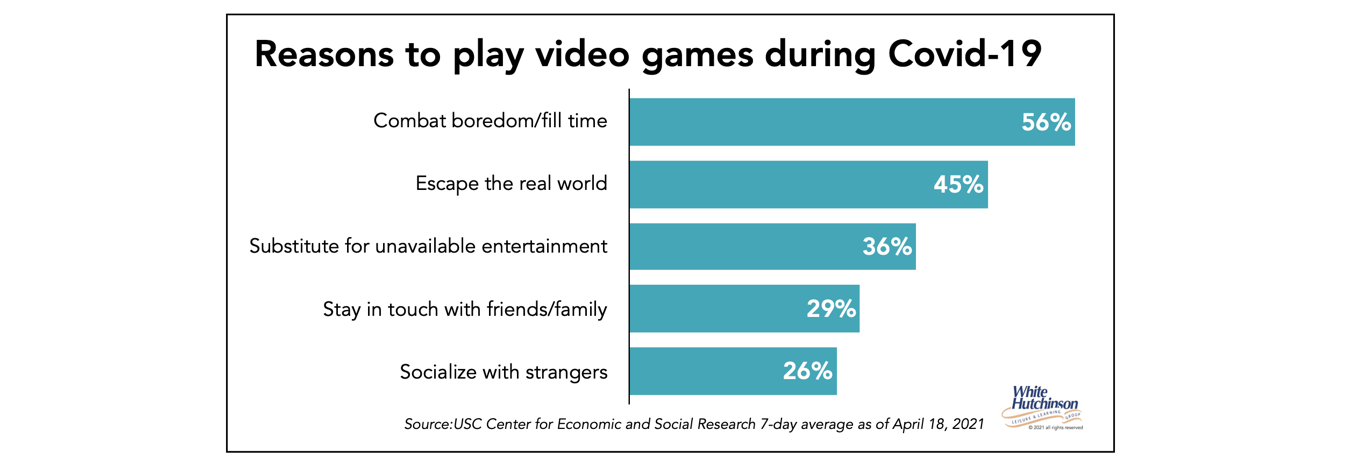
The Strategy and Futures Research consultancy has identified this move to Fourth Place experiences as the rise of the “metaversal self.” Iconic examples are Travis Scott’s concert inside Fortnite and how millions found friendship and mindfulness inside Animal Crossing: New Horizons. The Fourth Place allows people to meet many human needs without leaving home.
There are many other newly acquired or increased activities that people took up during the pandemic that, to some degree, will spill over into their leisure behaviors when the coronavirus is no longer a threat. These include taking up new or returning to at-home hobbies, including arts & crafts, cooking, gardening, sewing, candle making, jewelry making, calligraphy, even playing a musical instrument. A February YouGov poll found that nearly half of adults age 18-34 have found new at-home hobbies and pastimes they’ve enjoyed during coronavirus. According to a survey by StorageCafé, adults are so happy with the newfound hobbies that nearly eight in10 plan to stick with those activities long-term (79%).
If you thought the pandemic was a test for the very survival of location-based leisure venues, just wait until it’s over. With the entire world of leisure forever altered by people’s new behaviors, values, and expectations, the test is only just beginning.




